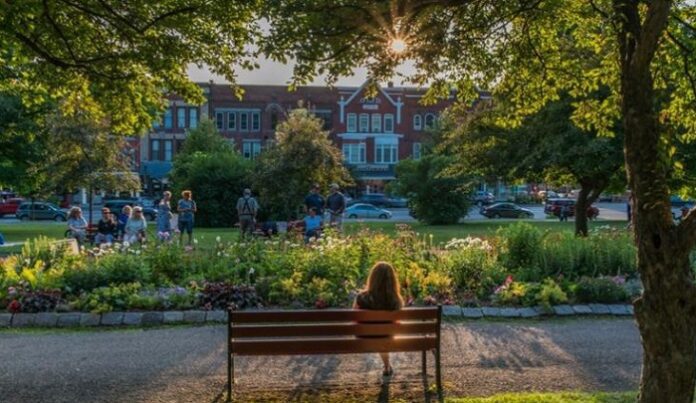A friend of mine decided to shake the dust of the cities off his feet last year and migrate to a more rural area. Reflecting on the move, he seemed surprised at how much he was enjoying the change. My takeaway from our conversation was that his life was fresh and new now that he has left the problems of the city. Having a community of reasonable people to live amongst wasn’t so bad either.
My friend isn’t the only one who made such a change in the last year or so; Minnesota Public Radio highlighted the trend in a recent story entitled, “Ready for a change: Couples go all in on small-town life.” The article describes how James and Katrina Ball uprooted their children from the Cayman Islands to settle in the small Minnesotan town of Battle Lake at the beginning of the COVID-19 pandemic so they could be near Katrina’s parents. Not intending to stay for the long haul, they still find themselves living there—and not only surviving but thriving in their new community.
While it once was the norm for small communities to empty out as their young people moved to the cities for bigger opportunities, it seems a reverse flight is beginning to take place—slowly, perhaps, but definite nonetheless. While some may see this as regression, it is actually progress, for a return to the rural, local community will eventually bring restored freedom and virtue to America’s citizens.
Those who move say they love the connected feeling that a small community brings. Mentioning a fall festival that Katrina helped organize, the Balls expressed their surprise at how helpful and participatory everyone was.
‘I just went and walked down to the businesses and everyone was like “Yeah, we’ll support you. What do you need?” [Katrina] recalled.
James has been amazed at how much work volunteers put into the community, but he says in a small town it can be easier to get things done because you see city officials at the coffee shop, and it seems everyone in town is connected.
‘It’s just so much more approachable. And it feels like in a small town, you can do anything, if you’ve got the stamina, really,’ he said.
Robert Nisbet noted this in his classic work, Quest for Community. “The family, religious association, and local community,” wrote Nisbet, “these, the conservatives insisted, cannot be regarded as the external products of man’s thought and behavior; they are essentially prior to the individual and are the indispensable supports of belief and conduct.” When such supports are gone, we shouldn’t be surprised to see individuals believe only in their own truth and behave in any depraved way that they choose. Nisbet elaborates:
Release man from the contexts of community and you get not freedom and rights but intolerable aloneness and subjection to demonic fears and passions. Society, Burke wrote in a celebrated line, is a partnership of the dead, the living, and the unborn. Mutilate the roots of society and tradition, and the result must inevitably be the isolation of a generation from its heritage, the isolation of individuals from their fellow men, and the creation of the sprawling, faceless masses.” [All emphasis added.]
Americans are lost, lonely, and adrift. Almost all of us can sense that without even looking at statistics.
But is it possible such a problem could be reversed by more Americans fleeing the cities and settling down in small communities? Here, people can’t blend into the background as much; they are a name instead of a faceless being, carried along with the crowd of good, upright folks striving to follow God, work hard, raise their family right, and support those around them with care and encouragement.
America won’t survive without turning away from the rootless and toward the rooted. If we’re serious about helping that about-face happen, perhaps it’s time to find a small community, settle down, and start the process of becoming more than a lonely automaton in a massive urban arena.
How did the land of the free and home of the brave come to this? We believe there are two significant factors: the breakdown of the education system and the collapse of the key social structures of family, community, and faith. Decades ago, parents could count on local schools to ensure students would be historically and culturally literate. No more. This is why we exist: To serve as a refuge for those who want to pursue truth, rediscover the wisdom and traditions of the past, discuss ideas calmly, and apply what’s been learned to their own lives and communities.



















